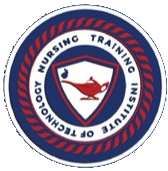Nurses make up the backbone of the healthcare industry. As patient advocates and skilled care providers, the role of nurses has never been more important in meeting the healthcare needs of a growing number of patients.
Most recently, the demands of an increasingly complex healthcare industry have meant that in this new landscape the role of nurses has changed.
The Role of Nurses in Modern Healthcare
Nurses have long delivered a high standard of care to the general public. Professional respect within the medical community, however, was hard-won through years of lobbying, organizing, and most importantly, advancing the profession academically.
To understand why nurses are so important in healthcare today, we need to look at what a registered nurse does — from the relationships they foster with patients to the ways in which they work with other practitioners.
Nurses Spend More Time with Patients
Think back to a recent doctor’s appointment. After you checked in at the front desk, chances are a nurse was the first person you saw. Between asking about your health and checking your vitals, he or she probably made what seemed like small talk. That small talk, however, was not just to put you at ease or avoid silence.
Skilled nurses know that taking the time to get to know patients can be extremely helpful in uncovering important health information — information patients might not offer up otherwise. After the doctor saw you, the nurse likely returned to talk through any medications the doctor prescribed and to ask if you had any additional questions before helping you check out.
The time nurses spend with patients in the hospital is even greater
Nurses are often described as serving on the front lines of healthcare — the first to notice when a patient’s condition has changed or to spring into action in a critical situation — and this research certainly makes that case.
Nurses as Patient Advocates
The time nurses spend with patients also provides them with unique insights into their patients’ wants and needs, behaviors, health habits, and concerns, thus making them important advocates in their care
The advocacy role of a nurse can take many forms, too. For example, in speaking with a patient’s family member, a nurse might uncover an important detail that was not reflected in the patient’s charts and relay this to the healthcare team. Or a nurse might have concerns that a medication is not working as expected and call the pharmacist to talk through it.
Education as a Critical Function of Nursing
A challenge felt across is the healthcare industry is low health literacy among healthcare populations. Health literacy is one’s ability to understand basic health information to make informed decisions.
Part of what makes doctors so good at what they do — their deep scientific knowledge of the field of medicine — can be challenging to communicate when it comes to discussing complex medical terminology with patients. Not to mention, some patients may feel intimidated by the medical community or not understand what questions to ask.
In their work, nurses devote a lot of their time and energy to educating patients. This could mean helping them understand a treatment or procedure, describing medications and side effects, emphasizing the importance of proper nutrition and good hygiene, or explaining how a clinic operates (in the case of ongoing treatment).
Nurses and their Role in Monitoring Patients’ Health
There can be no mention of the role of nurses in today’s complex healthcare environment without discussing the monitoring of patients’ care and keeping of records. Previously we discussed nurses’ role on the front lines of care. While physicians and other members of the care team also check on patients, it is nurses who monitor their condition day in and day out.
In assessing patients, nurses chart everything from patients’ vital signs and reasons for visiting, to their likelihood of falling (referred to as a “fall risk score”) and current medications. Then they summarize these assessments, update patients’ permanent medical records, and apply corresponding charges (a function of billing). In fact, nurses spend a fair amount of time updating records and communicating pertinent information to the larger care team.
Nurses Today Have Greater Autonomy Than You Might Think
Reading about the nursing profession, no doubt you have heard that nurses today have a greater degree of autonomy than in the past. What exactly does this mean? Especially in the case of hospital stays, nurses are often the first to uncover a problem, and while notifying the attending physician is standard protocol, there are times when nurses must act immediately to stabilize the patient.
In other cases, as part of the order set, a physician may spell out instances when a nurse can act without seeking permission from the doctor. (For example, if a patient’s magnesium levels drop to a specified level, the nurse may give the patient magnesium without consulting the doctor.)
This autonomy requires nurses to have a thorough understanding of their scope of practice, as well as collaborative, trusting relationships with physicians and other key members of the care team.



